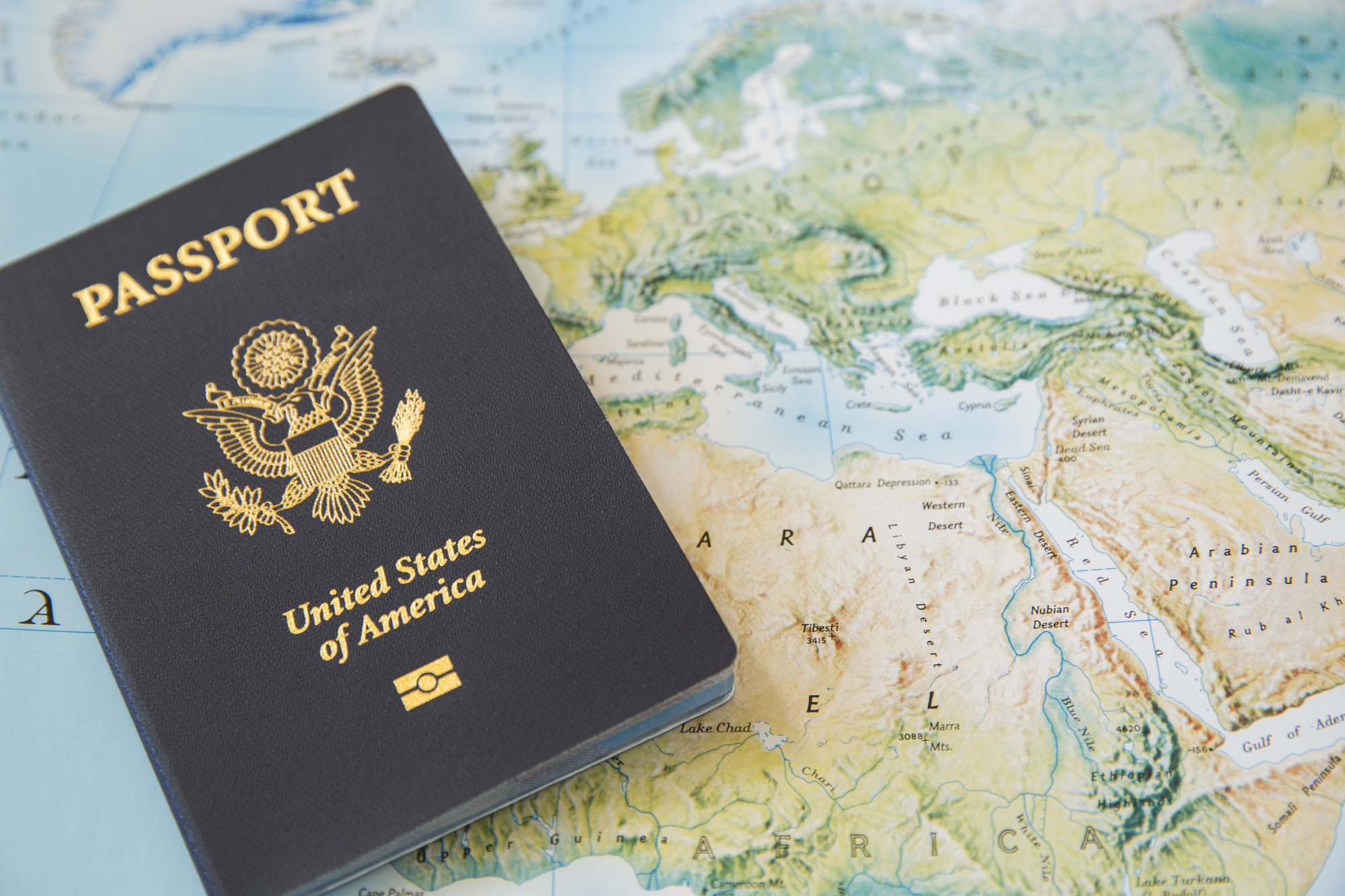
Nationality vs Citizenship: What Are the Differences?
The Earth is a compilation of billions of different people, all with their own heritage, history, and family tree. When you ask someone where they’re from, the answer isn’t always simple and straightforward.
Some people might feel inclined to answer by stating their nationality. Others, on the other hand, will immediately list their citizenship.
How are these two entities related and how are they different from one another? Understanding the answer means understanding your neighbor better than ever, so it’s important to get this distinction right.
Today, we’re breaking down the differences between nationality vs citizenship, so you know how to navigate this discussion moving forward.
Table of Contents
What Is Nationality?
First, let’s dive into nationality.
This term describes the place where you were born. Upon your birth, you are granted citizenship by the government of the country you were born into. You obtain your nationality from your parents, and you can claim it for the rest of your life.
This term can be related to ethnicity or race. It is innate in nature and will not change. You could move all over the world, but your nationality will not be affected by any type of relocation.
However, it’s important to make one critical point. Your nationality can be different from your ethnicity.
How is this possible? Ethnicity is more closely tied to the cultural and social markers that define your area of origin. For instance, it can include elements such as:
- Common ancestry
- Religious practices and expressions
- Familial culture
- Written and spoken languages
You could claim nationality for a given region but not follow the ethnic practices that the area claims. In this way, the two are separate from one another. Keep in mind that ethnicity is also different from race, as it is not biological in nature.
Race refers to the physical attributes that you obtain due to your given nationality. This can include your skin color, complexion, hair color, hair texture, and more.
What Is Citizenship?
Unlike nationality, citizenship is a defined legal status. It is juristic in nature and can change depending on the location in which you live.
In fact, there are four distinct ways to claim citizenship. These include:
- Through birth
- Through inheritance
- Through marriage
- Through naturalization
If you are born into a certain country, you will automatically become a citizen of that country. However, you can change your citizenship status through any of the methods listed above. Two of the most common methods are birth and naturalization.
Citizenship by Birth
Upon birth, you will become a citizen of the country that you’re born into.
Take the United States, for instance. According to the 14th Amendment of the U.S. Constitution, all people who are born into this country and are subject to its laws, are automatically citizens by birth.
Yet, even if you weren’t physically born in this country, you can claim U.S. citizenship by birth through other means. For example, you can be born outside of the U.S. and still be a citizen if you have citizen parents, and at least one of those parents has resided in the U.S. or an outlying possession (like Puerto Rico).
If one of your parents is a U.S. citizen and has lived in the country for at least one year before your birth, you can also claim citizenship that way. There are also less common ways to claim citizenship through birth.
For instance, if your mother conceives you via Assisted Reproductive Technology (ART) and surrogacy, you could still claim U.S. citizenship even if you’re born abroad. The only qualifying factor would be that you must be biologically connected to at least one parent who has active U.S. citizenship.
Citizenship by Naturalization
You could also become a citizen of another country through a process known as naturalization. To claim citizenship this way, you will have to complete a number of different steps and processes.
As long as you fulfill all of the required procedures, you can become a citizen of the United States. In addition, you must be able to show proof that you have maintained a permanent residency within the country in the period preceding your application.
To date, there are two ways around the permanent residency requirement. First, you can bypass this regulation if your spouse is a U.S. citizen who has maintained permanent residency in this country. Second, you can bypass it if you currently serve in the U.S military or have served in the past.
As long as you fulfill all of the other requirements for naturalization, these two instances can serve as workarounds for the residency restriction.
Requirements for Naturalization
Once you’ve established that you meet the basic residency requirements, you can move on to the other steps in the naturalization process. This process will look different in each country. For the United States, you must be able to supply evidence that proves:
- You’re at least 18 years old
- You’ve lived in the U.S. for at least five years (presently and continuously)
- You demonstrate positive moral character
These are only the basic qualification criteria. Once you supply evidence to support these claims, the U.S. government will require you to complete a more detailed application called an N-400. In addition, you must also pass a civics test and English test, as well as attend an interview.
During the interview, representatives from the U.S. Department of Homeland Security (DHS) will ask you a variety of questions. The goal is to understand more about your background and why you want to change your citizenship to the United States. Some of the most common questions you’ll receive include:
- Where have you lived and worked during your time in the United States?
- Can you tell us more about your background and history?
- What is your marital status?
- Are you a Legal Permanent Resident (LPR)?
- What is your relationship with the United States?
- Do you understand the founding principles of the country?
- Wil you take an oath of allegiance to the United States?
For many applicants, it isn’t the application process or even the interview that’s daunting. It’s the fees. It costs hundreds of dollars to file your N-400 application and there’s also a biometrics fee tacked onto the cost.
Yet, that’s not to say the interview is a breeze. Not only will your answers matter, but the interviewers will also be paying close attention to the way you speak. They’ll use the interview as an opportunity to gauge your competency with the English language and your ability to live and work successfully in the United States.
Other Citizenship Tests
The U.S. isn’t the only country that requires prospective citizens to complete an interview and test on the path to citizenship. In fact, most countries have their own version of the naturalization process. Before starting down this path, make sure you understand what’s required and how you should proceed.
It can help to have a coach or mentor guide you through these next steps. Most countries will clearly display their requirements online, so you can get started as soon as possible. You may even be able to take a practice test to quiz your knowledge!
For example, you can go here: https://www.citizenshipaustralian.com/australian-citizenship-practice-test/ to take the Australian Citizenship Practice Test online.
Nationality vs Citizenship: The Major Differences
Now that we’ve covered a nationality guide and a citizenship guide, let’s get into the details. Beyond their basic meanings, how are these two terms different from one another?
Here are the distinctions to note.
Concept Differences
Nationality can be ethnic or racial in nature. It describes how people look, live, and behave in the country where you were born. Alternatively, citizenship is more juristic and legalistic in nature.
This describes the administrative process that you’ve undergone to legally claim that you’re a citizen of a particular place. If you weren’t born into the country, then you can become a citizen through other means, like naturalization.
Methods of Entry
You can claim a specific nationality in one of two ways: birth or inheritance. Yet, you can claim citizenship in a number of ways. In addition to birth or inheritance, you can also become a citizen through marriage and naturalization.
Ability to Change
Once you’re born into a certain family, you cannot change that fact. Your nationality will always be with you, even if you travel to the complete opposite end of the Earth. As discussed, however, that does not mean that you have to claim that same ethnicity.
With citizenship, the process is much more fluid. You can become a citizen of one country when you’re born, and then change that citizenship through marriage, inheritance, or naturalization as you grow older. While you can’t change or reverse your nationality, you can do so to your citizenship.
Opportunity for Multiplicity
You can only claim one nationality. However, you can be a citizen of more than one country. This is another way in which these two concepts differ from one another.
Understanding Your Nationality or Citizenship
When you look in the mirror, what do you see?
In reality, you’re looking at a multitude of elements. You are your parents, and you are your own. You are everyone who came before you, and you are everything that has yet to be.
Physically-speaking, you display characteristics of your nationality. Yet, your citizenship also makes you who you are. Understanding nationality vs citizenship can help you see every aspect of yourself more clearly, so you can embrace yourself fully.
Looking for more helpful guides you can trust? Check out our Lifestyle section!








